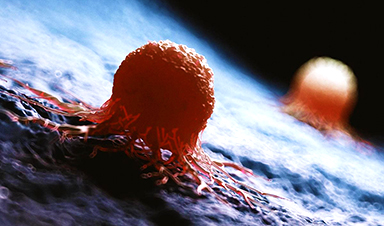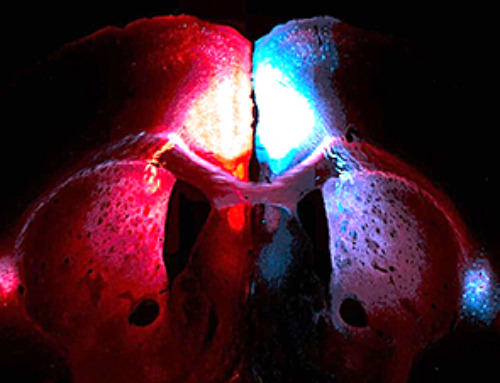Colorectal cancer is striking younger adults at alarming rates, driven by lifestyle and genetic factors.
Colorectal cancer (CRC) develops when abnormal cells grow uncontrollably in the colon or rectum, forming tumors that can eventually invade nearby tissues or spread to other parts of the body. It typically begins as small, benign growths called polyps, which can take years to become cancerous.
Globally, CRC ranks among the top three most common cancers, affecting millions of people each year.
Traditionally viewed as a condition that primarily affects older adults, it is now emerging in far younger populations, raising growing concern among doctors and researchers.
Surge in Early-Onset CRC
A study published in The Lancet Oncology has revealed a sharp rise in colorectal cancer diagnoses among adults under 50. Between 2013 and 2017, 27 of the 50 countries studied reported growing rates of early-onset cases. While North America and Europe continue to show high incidence, similar trends are now appearing across Eastern Europe, South-Central and Southeastern Asia, and South America.
Experts suggest that this shift may be linked to modern dietary habits, urbanization, and environmental influences. Preventive measures such as earlier screenings, improved nutrition, and greater public awareness are seen as essential to reversing the trend. Without these interventions, researchers warn that cases could continue to climb in the coming decades.
Life Factors Fuel Rise
Multiple studies suggest that modern eating patterns are contributing to the surge. High consumption of ultra-processed foods, red and processed meats, and sugary drinks has been linked to increased inflammation and a greater vulnerability to cancer.
For example, a study from Kazakhstan found that participants consumed nearly twice the World Cancer Research Fund's recommended weekly limit of 500 grams of meat. Moreover, only 8.6% of respondents met the recommended intake for fish, highlighting potential nutritional deficiencies that may further elevate cancer risk.
Obesity, another key risk factor, has also been linked to CRC. Excess body fat promotes chronic inflammation and disrupts metabolic processes, yet the full extent of obesity's role may be underestimated. A review of 18 studies found that many CRC patients experience unintentional weight loss before diagnosis, meaning traditional measures of obesity's impact could be complex.
Genetics Drive Inherited Risk
Early-onset CRC is frequently associated with hereditary cancer syndromes, including Lynch syndrome and familial adenomatous polyposis, according to Dr. Alexei Tsukanov, head of the Laboratory of Genetics at the National Medical Research Center for Radiology. These conditions result from genetic mutations in tumor-suppressor genes, increasing the likelihood of developing CRC at a young age.
Early detection is critical, yet many individuals ignore warning signs such as persistent changes in bowel habits, blood in the stool, unexplained weight loss, and abdominal pain.
Dr. Tsukanov stated the importance of genetic testing for families with a history of CRC. "Identifying a hereditary mutation allows us to implement lifelong clinical monitoring and early intervention, significantly improving survival rates," he explains.
Innovative technologies like BGI Genomics' COLOTECT Stool DNA Methylation Test identifies CRC-related genetic markers (SDC2, ADHFE1, and PPP2R5C) through stool DNA analysis, offer a promising solution for non-invasive early detection.
Public Awareness for Early Screening
In many nations, including those in Eastern Europe and Central Asia, CRC screening programs are inconsistent. Some countries, such as Kazakhstan, Lithuania, Latvia, and Georgia, have structured national screening initiatives, while others rely on opportunistic testing, leading to gaps in early detection.
"To improve early detection, we must educate both healthcare providers and the public about the importance of screening," says Jemma Arakelyan, an advisor at the Immune Oncology Research Institute and CEO of The Institute of Cancer and Crisis in Armenia.
References:
"Colorectal cancer incidence trends in younger versus older adults: an analysis of population-based cancer registry data" by Hyuna Sung, Rebecca L Siegel, Mathieu Laversanne, Chenxi Jiang, Eileen Morgan, Mariam Zahwe, Yin Cao, Freddie Bray and Ahmedin Jemal, 11 December 2024, The Lancet Oncology.
DOI: 10.1016/S1470-2045(24)00600-4
"Self-reported consumption frequency of meat and fish products among young adults in Kazakhstan" by Venera Akhmetova, Yuriy Balji, Yelena Kandalina, Ainara Iskineyeva, Akmaral Mukhamejanova, Akmaral Baspakova, Yassin Uzakov, Kuralay Issayeva and Galia Zamaratskaia, 1 July 2024, Nutrition and Health.
DOI: 10.1177/02601060221114230
Reference: "Is the association of overweight and obesity with colorectal cancer underestimated? An umbrella review of systematic reviews and meta-analyses" by Marko Mandic, Hengjing Li, Fatemeh Safizadeh, Tobias Niedermaier, Michael Hoffmeister and Hermann Brenner, 21 January 2023, European Journal of Epidemiology.
DOI: 10.1007/s10654-022-00954-6
Colorectal cancer is no longer just a disease of the elderly. It is increasingly affecting younger adults, largely due to unhealthy lifestyle choices. This growing trend calls for urgent action from governments, healthcare professionals, and individuals to promote awareness, improve diets, encourage healthier lifestyles, and expand access to early screenings. The time to act is now.
News
Rejuvenating neurons restores learning and memory in mice
EPFL scientists report that briefly switching on three “reprogramming” genes in a small set of memory-trace neurons restored memory in aged mice and in mouse models of Alzheimer’s disease to level of healthy young [...]
New book from Nanoappsmedical Inc. – Global Health Care Equivalency
A new book by Frank Boehm, NanoappsMedical Inc. Founder. This groundbreaking volume explores the vision of a Global Health Care Equivalency (GHCE) system powered by artificial intelligence and quantum computing technologies, operating on secure [...]
New Molecule Blocks Deadliest Brain Cancer at Its Genetic Root
Researchers have identified a molecule that disrupts a critical gene in glioblastoma. Scientists at the UVA Comprehensive Cancer Center say they have found a small molecule that can shut down a gene tied to glioblastoma, a [...]
Scientists Finally Solve a 30-Year-Old Cancer Mystery Hidden in Rye Pollen
Nearly 30 years after rye pollen molecules were shown to slow tumor growth in animals, scientists have finally determined their exact three-dimensional structures. Nearly 30 years ago, researchers noticed something surprising in rye pollen: [...]
NanoMedical Brain/Cloud Interface – Explorations and Implications. A new book from Frank Boehm
New book from Frank Boehm, NanoappsMedical Inc Founder: This book explores the future hypothetical possibility that the cerebral cortex of the human brain might be seamlessly, safely, and securely connected with the Cloud via [...]
How lipid nanoparticles carrying vaccines release their cargo
A study from FAU has shown that lipid nanoparticles restructure their membrane significantly after being absorbed into a cell and ending up in an acidic environment. Vaccines and other medicines are often packed in [...]
New book from NanoappsMedical Inc – Molecular Manufacturing: The Future of Nanomedicine
This book explores the revolutionary potential of atomically precise manufacturing technologies to transform global healthcare, as well as practically every other sector across society. This forward-thinking volume examines how envisaged Factory@Home systems might enable the cost-effective [...]
A Virus Designed in the Lab Could Help Defeat Antibiotic Resistance
Scientists can now design bacteria-killing viruses from DNA, opening a faster path to fighting superbugs. Bacteriophages have been used as treatments for bacterial infections for more than a century. Interest in these viruses is rising [...]
Sleep Deprivation Triggers a Strange Brain Cleanup
When you don’t sleep enough, your brain may clean itself at the exact moment you need it to think. Most people recognize the sensation. After a night of inadequate sleep, staying focused becomes harder [...]
Lab-grown corticospinal neurons offer new models for ALS and spinal injuries
Researchers have developed a way to grow a highly specialized subset of brain nerve cells that are involved in motor neuron disease and damaged in spinal injuries. Their study, published today in eLife as the final [...]
Urgent warning over deadly ‘brain swelling’ virus amid fears it could spread globally
Airports across Asia have been put on high alert after India confirmed two cases of the deadly Nipah virus in the state of West Bengal over the past month. Thailand, Nepal and Vietnam are among the [...]
This Vaccine Stops Bird Flu Before It Reaches the Lungs
A new nasal spray vaccine could stop bird flu at the door — blocking infection, reducing spread, and helping head off the next pandemic. Since first appearing in the United States in 2014, H5N1 [...]
These two viruses may become the next public health threats, scientists say
Two emerging pathogens with animal origins—influenza D virus and canine coronavirus—have so far been quietly flying under the radar, but researchers warn conditions are ripe for the viruses to spread more widely among humans. [...]
COVID-19 viral fragments shown to target and kill specific immune cells
COVID-19 viral fragments shown to target and kill specific immune cells in UCLA-led study Clues about extreme cases and omicron’s effects come from a cross-disciplinary international research team New research shows that after the [...]
Smaller Than a Grain of Salt: Engineers Create the World’s Tiniest Wireless Brain Implant
A salt-grain-sized neural implant can record and transmit brain activity wirelessly for extended periods. Researchers at Cornell University, working with collaborators, have created an extremely small neural implant that can sit on a grain of [...]
Scientists Develop a New Way To See Inside the Human Body Using 3D Color Imaging
A newly developed imaging method blends ultrasound and photoacoustics to capture both tissue structure and blood-vessel function in 3D. By blending two powerful imaging methods, researchers from Caltech and USC have developed a new way to [...]





















